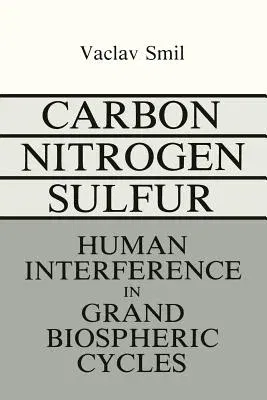Carbon-Nitrogen-Sulfur: Human Interference in Grand Biospheric Cycles (Softcover Reprint of the Original 1st 1985)Paperback - Softcover Reprint of the Original 1st 1985, 22 December 2012

Qty
1
Turbo
Ships in 2 - 3 days
In Stock
Free Delivery
Cash on Delivery
15 Days
Free Returns
Secure Checkout

Part of Series
Modern Perspectives in Energy
Print Length
460 pages
Language
English
Publisher
Springer
Date Published
22 Dec 2012
ISBN-10
1468488414
ISBN-13
9781468488418
Description
Product Details
Book Edition:
Softcover Reprint of the Original 1st 1985
Book Format:
Paperback
Country of Origin:
NL
Date Published:
22 December 2012
Dimensions:
22.86 x
15.24 x
2.46 cm
ISBN-10:
1468488414
ISBN-13:
9781468488418
Language:
English
Location:
New York, NY
Pages:
460
Publisher:
Weight:
639.56 gm